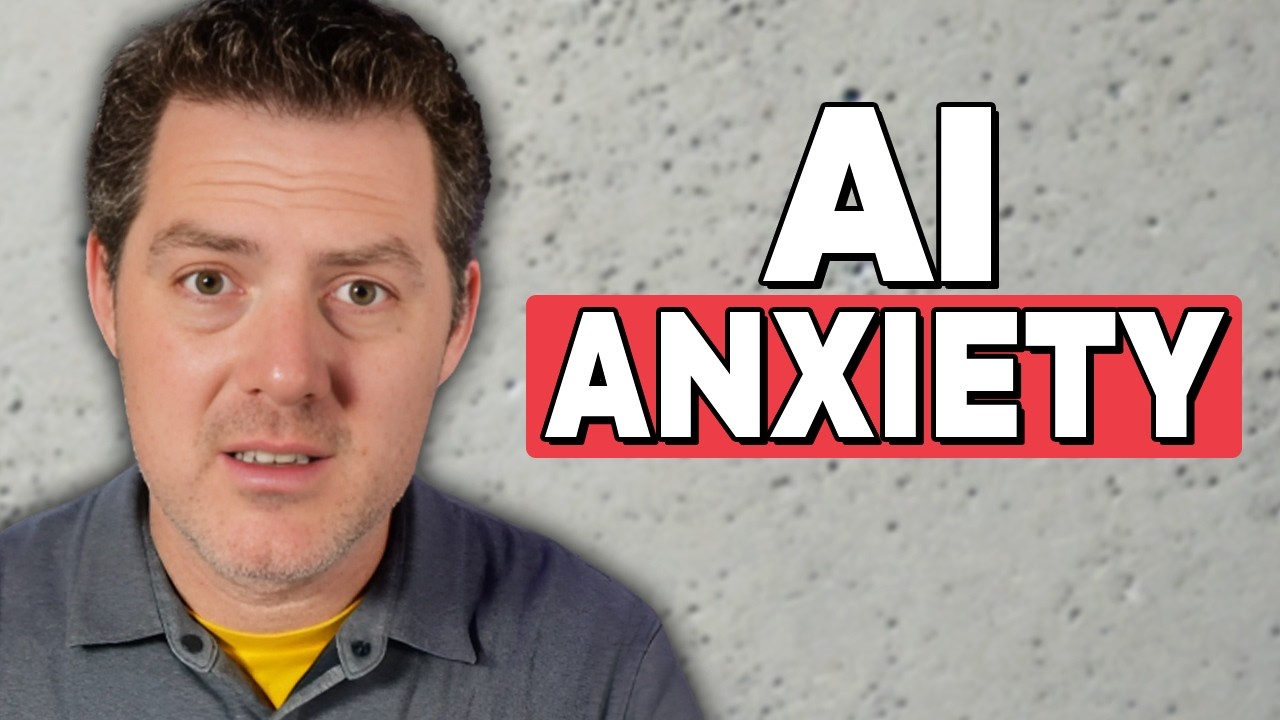The video argues that fears of AI causing mass unemployment are exaggerated, emphasizing that AI will augment human work and create new opportunities rather than replace jobs entirely. It highlights how humans will manage and collaborate with AI to boost productivity across industries, and stresses the importance of reskilling, responsible regulation, and strategic adaptation to ensure AI benefits society broadly.
The video discusses the alarming predictions made by Dario Amade, CEO of Anthropic, who claims that AI could eliminate up to half of all white-collar jobs within the next one to five years, leading to massive unemployment and economic hardship. While these predictions are often sensationalized and create fear, the speaker offers a more optimistic outlook, emphasizing that the future with AI will likely involve humans working alongside increasingly powerful AI tools rather than being replaced entirely. The transition period may be challenging, but history shows that technological revolutions tend to create new opportunities and jobs even as old ones disappear.
The speaker presents a detailed vision of how AI will transform productivity and work tasks. Instead of replacing humans, AI will augment their capabilities, allowing workers to manage multiple AI agents that produce vastly higher outputs. For example, a human managing three AI agents could generate three times the output, and as AI improves, this leverage will grow exponentially. Humans will still be in the loop, overseeing and curating AI-generated work, but their roles will shift from manual tasks to managing and guiding AI systems, leading to increased efficiency and new kinds of jobs centered around AI management and oversight.
The video also explores how AI will impact industries like education and entry-level jobs. Teachers, for instance, will be able to create hyper-personalized learning plans for each student, vastly improving educational outcomes without reducing the number of teachers. Similarly, entry-level white-collar jobs such as data entry or basic analysis will evolve into roles focused on managing AI tools rather than performing repetitive tasks. The emphasis is on learning to work with AI, acquiring new skills, and adapting to the changing nature of work rather than fearing job loss, as history has shown that technological progress often leads to new employment opportunities.
Furthermore, the speaker highlights how companies and industry leaders are already preparing for this AI-driven future by encouraging employees to reskill and integrate AI into their workflows. Many CEOs are emphasizing the importance of experimenting with AI, upskilling staff, and using AI to generate new ideas and accelerate projects. The goal is to leverage AI for strategic growth rather than merely reducing costs. This proactive approach aims to maximize human-AI collaboration, ensuring that productivity increases translate into economic growth and new job creation, rather than widespread unemployment.
Finally, the video addresses concerns about wealth concentration and global competition in AI development. The rapid advancement of AI could lead to a concentration of power among large corporations and wealthy investors, potentially widening economic inequality. There are also worries about adversaries, such as China, gaining an edge in AI, which could have geopolitical implications. The speaker advocates for increased public awareness, government investment, and responsible regulation to ensure that AI benefits society broadly. Overall, the message is that with proper adaptation, learning, and strategic effort, humanity can harness AI to create a more productive and innovative future rather than succumbing to fear and pessimism.
